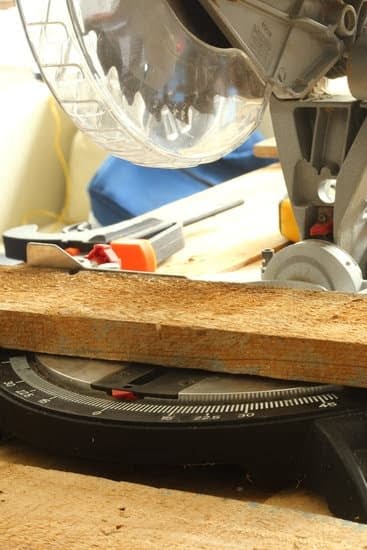Introduction
Woodworking machine setters are skilled professionals who are experts in operating precise, computer-controlled equipment to produce furniture, fixtures and wooden parts used in many industries. They measure, mark, and assemble assembled boards or built saws into products of various shapes and sizes.
The day-to-day job of a Woodworking Machine Setter involves setting up, adjusting and calibrating different machines for cutting and sculpting wood pieces. This includes measuring material size before loading it into the machine as well as programming the CNC (Computer Numerical Control) systems with specific instructions relating to speed, drill sequence number and depth of cut.
The Setters also make sure that the exact materials and tools needed for each piece of production is available before they start working on their task. Additionally, they have quality checks to ensure all materials meet customer requirements while operating their machines safely & in compliance with safety regulations. Finally, they must be able to troubleshoot any problems with the machinery’s parts by changing feed adjustments or making lubrication changes when necessary.
In conclusion, Woodworking Machine Setters are highly trained individuals who specialize in using computerized machinery to manufacture wooden items at high precision levels. They must be knowledgeable about programming CNC’s correctly and understand how certain adjustments affect a product quality output. Furthermore, they must be familiar with safety measures and regulations to complete tasks without injury or other risk factors posed by these machines.
Work Environment
The work environment of a woodworking machine setter can be a rewarding and interesting career. Depending on the company and workplace, the physical environment could range from an open warehouse to a corporate office. A typical setter typically works around large pieces of machinery (such as saws, presses, sanders, planers, lathes) with their hands or in some cases by utilizing hoisting or lifting equipment. The ability to read and interpret blueprints or schematics may be required in order to successfully adjust or maintain the machinery and calibrate gauges. Some individuals may also be required to run tests on samples cut off from production runs in order to ensure that the product is up to spec. The work environment requires excellent communication and organizational skills since performance reports often need to be mentioned with other departments for way determination/corrective action. Additionally, depending on the type of job (i.e repair work vs new set ups), the employee should have Microsoft Office experience as some companies require records such as notes, timesheets, safety messages and machine maintenance logs are kept on digital files versus traditional paper method filings. Generally speaking, an individual in this field must embody advanced mechanical knowledge while having essential proficiencies in math & science plus trouble shooting techniques when needed within their regular routine assignments.
Job Duties
Woodworking machine setters work to install, adjust, and operate various types of woodworking machines. They are responsible for setting up the machines so that they are able to accurately cut, shape, join and finish wood pieces according to design specifications. The job duties of a woodworking machine setter involve recording measurements, selecting appropriate tools and sharpening them when necessary. Additionally, they must inspect their products for accuracy in quality control and make any necessary calibration adjustments if flaws are present. Furthermore, effective communication with supervisors as well as other staff members is essential since the success of the task is dependent on everyone collaborating effectively. Woodworking machine setters also have to have an excellent knowledge and understanding of all safety protocols when it comes to working with wood machinery. Their main job duties include operating saws (such as table saws and band saws), gluing machines, routers, drill presses and sanders in order to complete projects within the expected time frame. Finally, knowledge of machines such as lathes may also be required depending on the company’s needs.
Certifications and Skills
Woodworking machine setters typically need some special certifications and skills in order to be effective. The most important of these includes the ability to operate specialized machinery found in a woodworking shop, such as a lathe, drill press, saws and other complicated tools. Becoming certified to use these tools can demonstrate a level of knowledge and expertise that employers appreciate and look for when hiring woodworking machine setters. Additionally, Woodworking machine setters must also understand the different types of wood materials and how each material should be cut and worked with certain tools. Other required skills include the ability to read plans or drawings and measure accurately for precision cuts or parts.
Furthermore, depending on the type of job being done, the setter may need certifications covering areas such as protective equipment (PPE) awareness, hazardous materials safety, environmental regulations, health regulations considerations and more. Many modern-day machines used in the industry also have computer componentry and programming involved to effectively operate them; thus having proficiency with computers can also be advantageous if it is required by a particular job role. Being proficient in mathematics is also helpful as understanding measurements more accurately requires detailed calculations sometimes involving fractions or decimals instead of integers alone. Finally, most companies prefer workers who are reliable, maintain good attendance records, have excellent teamwork skills and are able to work at an efficient pace under pressure independently or with minimal supervision when needed.
Education and Training
In order to become a woodworking machine setter, individuals typically need postsecondary education, training, and certification. Individuals may choose to begin their educational journey by enrolling in degree programs such as carpentry or industrial maintenance. Though not always required, attending a trade school may also help aspiring woodworking machine setters learn the skills they need for the job.
Once enrolled in a program such as carpentry or industrial maintenance, students may gain knowledge related to types of woods and other materials used in woodworking and how these substances break down when exposed to various weather conditions. Understanding different tools used in woodworking and how they operate is also an important part of machine setting. Additionally, classes may focus on safety protocols such as awareness of electrical hazards when working with machinery and proper lifting techniques that protect workers’ backs from strain.
Further on-the-job training can cover topics like use of computerized tools for cutting materials; calibration of machinery; and implementation of specifications related to dimensions, tolerances, angles, edges, and finishes. Training may continue even after workers have been certified as knowledgeable in specific competencies required for setting up machines as refreshers are necessary from time to time due to changes in technology that happen quickly within the industry. Furthermore, employees must demonstrate mastery in written or electronic tests about safety practices at most workplaces before allowed entry into supervised workspaces unassisted. Employers may require additional certifications before authorizing complete autonomy when operating equipment”they often vary based on business needs.”
Career Potential
Woodworking machine setters have a promising future as the demand for woodworking products continues to surge. Those who pursue this career can look forward to job stability, good wages, and the potential for career progression. With proper job training and experience, many positions offer opportunities such as advancement into managerial roles or supervisory positions.
There is also potential to pursue additional education or specialized training in order to further one’s career. With proficient knowledge of the complex tools and machinery used in woodworking operations, setters may be able to advance into roles such as shop supervisors and production directors. Many employers are also looking for individuals with expertise in designing complicated projects, costing and budgeting, or product development ” specializations which could lead to more rewarding positions with higher salaries.
In addition to providing employment opportunities within shops or factories dedicated to woodworking, there may also be potential opportunities available through working with contractors on custom-made pieces using independent clientele; this could potentially increase one’s income significantly. Furthermore, increased knowledge of retail sales may provide the skills to move into sales-related roles either within the woodworking industry itself or outside it. With the right skill set and drive for success, a woodworking machine setter may not only find job stability but also true career potential.
Benefits
Woodworking machine setters gain a variety of benefits, including the ability to develop their technical knowledge and have the satisfaction of creating something tangible. As setters, they work with various types of machinery that is used to cut and shape wood into different pieces, such as tables, chairs, doors and cabinets. They also oversee various machine operations and manage production processes to ensure accuracy in the finished product.
The training involved in becoming a woodworking machine setter is extensive, yet incredibly beneficial and rewarding. With this education comes a great understanding of machinery functions and an appreciation for why proper machinery maintenance is so vital. Setters learn how to read blueprints, diagnose mechanical problems and program computer-controlled machines. Setting woodworking machines involves intricate detail in order to achieve precise results efficiently. Further benefits include a strong income potential”with experienced setters able to earn more than six figures each year”as well as long-term job security due to continued growth in the industry around the world. Additionally, as technology rapidly evolves, there’s usually on-the-job training available related to new advances in materials or processes that would require retooling or reengineering at certain times throughout their careers. Broadening one’s skill sets through advanced courses keeps them up-to-date on the latest trends while increasing their chances of promotions within the field or advancement opportunities into other related fields within the industry at large. Lastly, there is ample room for upward mobility within setting professions due their never ending demand for highly skilled professionals who are comfortable working with all kinds of equipment.
Growth Opportunities
Woodworking Machine Setters are essential to the woodworking and manufacturing industry, as they are responsible for setting up and operating a variety of woodworking machines. Woodworking Machine Setters have the opportunity to progress in their career by advancing to higher positions within their department or company.
Advancement opportunities in this field may include becoming a supervisor, which would involve training new machine setters, troubleshooting production problems, and providing technical support for other team members. Additionally, individuals with further education could move into roles as quality inspectors or engineering technicians/designers. Those interested in fabrication and prototyping could also look into advancements in this area as well.
Other potential advancements could include research or development positions if the person has knowledge or experience of computer aided design (CAD) systems. There are also opportunities for growth into leadership roles such as production manager or supply chain manager, where one would oversee all aspects of production from procurement to shipping. Lastly, one could even make the step up to management roles such as plant manager or operations director where overall decision making is required on behalf of the company.
In short, there are a variety of opportunities available for an individual looking to advance their career as a Woodworking Machine Setter. With dedication and hard work it is possible to attain higher-level positions within the woodworking industry and achieve success in the field.
Conclusion
Woodworking machine setters are some of the most important and in-demand professionals working in factories, workshops, and other production facilities. To become a successful woodworking machine setter requires the interest and skills it takes to operate industrial equipment, read blueprints, and understand safety guidelines. As a reward for their efforts these professionals can expect competitive pay rate, benefits, ample job opportunities, and an ever-growing demand for their speciality. The conditions for becoming a woodworking machine setter vary depending on the job site and level of experience required. Generally speaking, those who have prior experience or knowledge in operating or servicing industrial machinery are typically seen as very desirable candidates. Furthermore having certifications or other related qualifications may be helpful when applying to open positions. With the right education and skill sets though any determined individual can become a successful woodworking machine setter. This line of work offers immense satisfaction from working closely with a wide range of tools used in various building processes as well as being able to work with your hands to help create products that will last generations.
In addition to being knowledgeable about operate and maintain industrial equipment there are some other qualities which can increase an individual’s chances of succeeding in this field. These include excellent problem solving ability combined with strong mechanical aptitude, manual dexterity, accuracy with fine measurements, logical thinking tendencies, good cooperation skills when working on projects with colleagues , literacy in computer software applications such CAD (Computer Aided Design), attention to detail at all times when lathe operations are concerned , proper PPE (Personal Protective Equipment ) use during every operation; proper handling & storage of materials according to environmental requirements; securing adequate rest before shifts ; staying up-to-date with industry news or product innovation developments; effective communication skills while analyzing orders & when providing customer service support ; and finally clear understanding paper documents & labeling guidelines . Taking all these qualities into consideration before applying for woodworking machine setter positions can help ensure enhanced job performance down the road – leading ultimately lead to career satisfaction success.

Hi everyone! I’m a woodworker and blogger, and this is my woodworking blog. In my blog, I share tips and tricks for woodworkers of all skill levels, as well as project ideas that you can try yourself.





